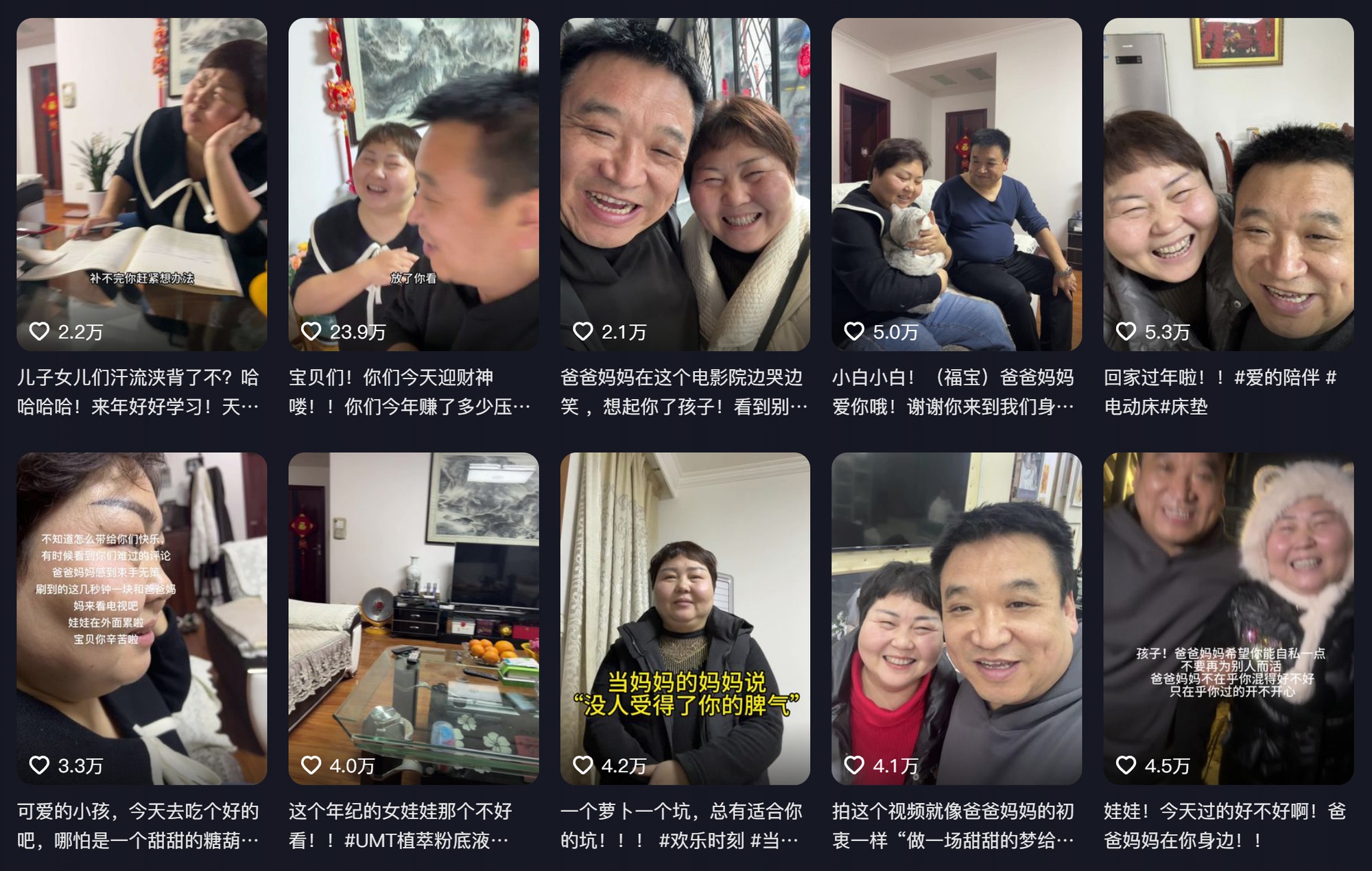Chinese Youths Turn to TikTokers to Fill the Void of Parental Love

“Online Parents”
Fan Xiaotong, a second-grade student from Shanghai, enjoys sharing everything with her “parents” — from exam stress to delicious food. But these “parents” she communicates with aren’t her biological family. In fact, Fan doesn’t even know their real names. All she knows is that they are a couple who own a Douyin (Chinese TikTok) channel, creating content about raising children.
Fan has become an enthusiastic fan who sees them as her parents, as they provide the positive and affectionate parenting style she has never experienced at home. She understands that her “parents” hardly know who she is and often do not respond to her messages. But she doesn’t mind; she loves the feeling of sharing her emotions with them and the excitement of occasionally receiving encouraging replies.
Fan is not alone. The number of content creators focusing on parenting has been increasing on Chinese social media platforms recently. However, the audience for such content is mostly young people, not parents seeking advice. Like Fan, many young people feel disconnected from their own parents and consider these content creators as substitute family figures. They view them as their parents and pour out their feelings through messages.

Growing Pain
As time goes by, the trend of “online parents” keeps growing. Numerous middle-aged couples have created similar channels to share their experiences as parents. They are also seeking interactions and followers.
Zhang Peixian, 35, has also adopted some TikTok content creators as her “online parents.” Like Fan, she sees it as a form of consolation to compensate for the lack of attention she received since childhood.
Zhang’s childhood home was not a happy place. She reveals that her father often abused her mother, and she has never developed a close relationship with either of them. That’s why she cherishes the joyful smiles of her “online parents.” She says, “I have never seen my mother smile like that.”
Wu, a 43-year-old mother of two boys, started creating content about her family life a few months ago and has attracted over 70,000 followers on Xiaohongshu. Many of her followers view her as their “online parents,” and Wu receives numerous messages every day. Among them are children struggling with mental health issues and sad family situations.
Their stories often shock Wu. One boy reveals that his father only allows him to bathe at specific times and threatens physical punishment if he disobeys. Another girl shares how her parents pressure her to study for long hours, despite her being diagnosed with a congenital heart disorder. Wu has even received messages from followers planning to end their lives.
Wu responds to all the messages she receives whenever possible. She believes her fans are seeking positive changes in their lives and says, “Changes can happen if they are listened to and receive feedback.”
Concerns and Risks

Yu Zehao, a psychotherapist in Wuhan, believes that the increasing trend of “online parents” fills the emotional void in the lives of many children. While many Chinese parents often focus on disciplining their children, “online parents” provide much-needed emotional support.
However, Yu is concerned about this trend. Although “online parents” can provide comfort, especially for young people facing serious emotional challenges, there is a risk of disconnecting from reality.
There are risks associated with establishing close relationships with strangers online. What if these “online parents” turn out to be different from what they claim to be?
In late February, a influential content creator with over 100,000 followers on Xiaohongshu suddenly had their account suspended, sparking outrage and speculation. The truth behind the incident remains unclear, but many fans believe that the posts, written from the perspective of a father raising a teenage daughter, were actually written by the daughter herself.
However, Fan, the 13-year-old girl, seems unconcerned about the possibility of her “online parents” being impostors. She says, “What matters is that they provide me with a certain level of emotional support.”
Source: Sixth Tone
